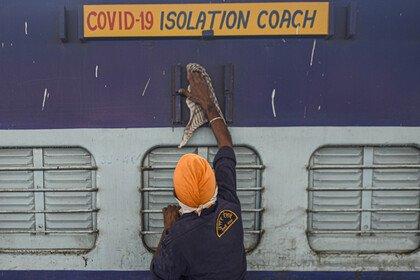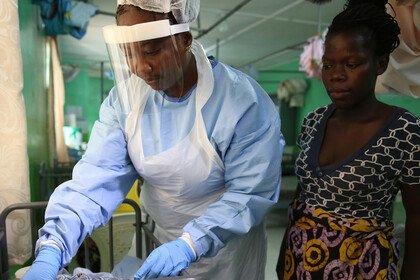
The global response to AMR: momentum, success, and critical gaps
The impact of antimicrobial resistance (AMR), which causes drug-resistant infections, is a growing public health concern in every country in the world. This report gives an update on the status quo, recent developments and remaining critical gaps in the AMR response globally.
What’s inside
The findings are based on interviews with approximately 150 experts throughout 2019 and 2020, and reviews of more than 250 documents. The report includes:
- analysis of the current AMR landscape, recent developments and gaps in the global response
- a proposal for what a critical path for the AMR global response could look like
Who this is for
- policy makers
- global health community
- product developers
- researchers
Key findings
1. The AMR community has achieved notable recent successes:
- AMR has gained prominence on the global political agenda – it has moved from a largely medical topic to a political one
- the AMR community has grown into a broad, multi-sectoral coalition of actors that come from a range of sectors, including human health, animals and agriculture, and the environment
- early-stage and translational research are robustly funded.
2. Critical gaps are threatening this progress:
- global AMR discussions in the past few years have not translated into action, particularly in low- and middle-income countries
- prioritising interventions has been difficult, mainly due to the complex, multifaceted nature of AMR
- the AMR agenda was at risk of losing momentum even before Covid-19; the pandemic has made this concern more acute.
3. Covid-19 has radically altered the world’s conversation on public health, and will likely affect the global response to AMR in at least two ways:
- Covid-19 has placed both upward and downward pressure on the development of drug resistance in infections
- the policy fallout from Covid-19 brings both risks and opportunities for the attention AMR receives on a policy level, including funding, advocacy, and research.
4. The next few years will define the trajectory of the long-term AMR response and how successful it can be:
- there is a clear need to rethink the positioning of AMR as part of the global health agenda
- the AMR community must align on a specific critical path to achieve impact.
Downloads
The complexity of the AMR landscape, combined with a dearth of evidence allowing policymakers to quantify the relative contribution to resistance of different themes, has led to a state of paralysis.

